They were stalkers, sexters and rapists — and worked safeguarding Florida delinquents
This article and others in this series were produced as part of a project for the University of Southern California Center for Health Journalism’s National Fellowship, in conjunction with the USC Annenberg School for Communication and Journalism.
Other stories in the series include:
Senators demand more state oversight of private juvenile facilities
Powerful lawmaker calls for juvenile justice review in wake of Herald series
Juvenile justice chief defends agency, calling abuses ‘isolated events’
An officer used a broom to beat juveniles into submission. They called it ‘Broomie.’
NAACP demands reform as lawmakers plan tour of lockup where youth was fatally beaten
Criminal record? Horrible work history? Florida juvenile justice would still hire you
At this juvenile justice program, staffers set up fights — and then bet on them
Dark secrets of Florida juvenile justice: ‘honey-bun hits,’ illicit sex, cover-ups
Lightning blasted his shoes off — and illuminated a pattern of abuse by staff
How small rebellions by Florida delinquents snowball into bigger beatings by staff
FIGHTCLUB: A Miami Herald investigation into Florida’s juvenile justice system

Razor wire surrounding the Palm Beach Youth Academy in West Palm Beach. Emily Michot
By Carol Marbin Miller and Audra D.S. Burch
For the last few months of his short career in juvenile corrections, Ernest Parker prowled the halls of the Milton Girls Juvenile Residential Facility looking for easily wooed teens.
The medical technician, just months into his new job in the spring of 2012, transformed quiet hours on the night shift at the juvenile program in Northwest Florida into a hunt for illicit sex.
Night after night, Parker had his way with young girls, fondling them and penetrating them with his fingers. He rewarded them with sweet talk, candy and breath mints that sometimes made them feel woozy.
“He doesn’t just touch you,” the youngest accuser, 14, would later tell a police detective. “He talks to you first. ... He smiles at you and kinda gives you a hint, like being friendly and nice. Always smiling at you.”
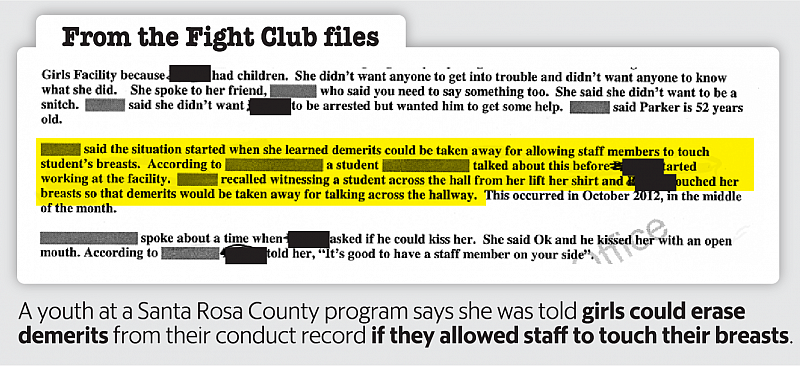
The reported victims at Milton, nine in all, told investigators that Parker presented himself as a gentle father figure — though one who behaved in unfatherly ways. Santa Rosa sheriff’s detectives called him a classic pedophile, charging him with 16 counts of sexual battery and other misconduct, part of a troubling parade of employees of the state’s largely privatized juvenile justice system caught preying on young girls and boys.
Out of the view of security cameras, in secluded spaces and even on off-campus trips, some of the men and women tasked with protecting and counseling youths turned Florida’s juvenile lockups and residential centers into a predators’ playground.
Taking advantage
“She’s an adult. You’re a kid. Kids don’t have their own choices. She made choices for you and they were not good choices.”
That’s what Bridget Hester told her then-15-year-old daughter, who disclosed she’d had sex for three months with a woman who had been her counselor at the now-closed Broward Girls Academy. Riviera Beach police said there was probable cause to charge the counselor with child abuse and lewd or lascivious battery.
But on Jan. 31, 2014, prosecutors declined to press charges, saying they could not “prove all legally required elements of the crime.” The counselor was fired.
Counselor allegedly had sex with a 15-year-old. The adult's free. The teen went to prison.
A counselor at Broward Girls Academy allegedly engaged in sex repeatedly with Bridget Hester's daughter. When the employee moved on, the daughter carjacked a vehicle to confront the counselor. The teen went to prison. Her mom asks, "Where's the justice?" -Emily Michot
“Where’s the justice?” Hester asked. “If she did it once, she’ll do it again. She knew my daughter was taking medications for her mind, for her thinking. Why do that? That’s taking advantage.”
Florida has no tolerance for officers or youth workers who exploit their power over young people, Department of Juvenile Justice Secretary Christina K. Daly told the Herald. “Staff are held accountable. We have prosecuted a number of staff as a result of this behavior. I will not tolerate it.
“So many of the kids that come into our system are already victims of sexual abuse and other types of abuse,” Daly added. “I certainly don’t want this system to contribute to that.”
DJJ Secretary Christina K. Daly on instances of sexual misconduct by juvenile justice staff
'So many of the kids that come into our system are already victims of sexual abuse. … I certainly don't want this system to contribute to that.' -Emily Michot
Where it began: the ‘rape room’
Before there was a Milton, before there was a Broward Girls Academy, there was Dozier, the taproot of Florida’s troubled juvenile justice system. The compound opened on New Year’s Day 1900.
When he was sentenced to the now-shuttered Arthur G. Dozier School for Boys 57 years ago, Robert Straley was a skinny 13-year-old, all of 105 pounds. He vividly recalls two guards taking him to what was called the “rape room” and taking turns with him until he passed out. He says the trauma destroyed his life.
“It stuck in my side like a knife: You were raped, and these guys got away with it,” he said recently. “I just did not want to acknowledge that had happened.”
Straley never completely outgrew the anguish. For most of his adulthood, he could not understand why he embraced dangerous behavior, why he avoided contact with men, why he would be gripped by inexplicable rage. “I would get rushes of adrenaline and get mad,” he said. “This went on for 40 damn years.”
A significant number of today’s detainees will know Straley’s inner turmoil. The Herald examined 10 years of DJJ inspector general reports and administrative reviews and complaints to the Department of Children & Families abuse hotline. DCF tallied 469 accusations of sexual abuse in the juvenile justice system.
Much of what happens is not of the same brutal nature as Straley experienced. But it is nonetheless inappropriate and unlawful. As “mandatory reporters,” DJJ employees and the agency’s private contractors must document it.
DJJ has its own tally and conducts its own investigations. There is no doubt overlap between the two agencies’ numbers, but they also diverge. Detainees can remain in the system a short time after their 18th birthday. But DCF has no jurisdiction over those who have passed that benchmark.
Since 2007, DJJ’s inspector general investigated at least 62 complaints against staff involving “sexual abuse.” The number of cases it substantiated: zero — despite there being several former workers currently in prison or on probation for sexual misconduct. In those cases, investigators may have substantiated different, lesser allegations.
For example, the Herald found 166 investigations of improper conduct of a “sexual nature,” 21 of them verified.
And DJJ investigated at least another 142 complaints of improper conduct resulting from a “staff/youth relationship,” substantiating 53. Such cases mostly involved youth workers crossing professional boundaries — exchanging “love letters,” for instance — but where sexual activity could not be proven.
Such behavior, research shows, is directly linked to sexual abuse. In a 2012 U.S. Justice Department study, almost half of the juveniles who reported being sexually victimized by staff in a correctional program said workers wrote them letters or gave them photos. Nearly two-thirds said the staff member who exploited them “treated them like a favorite” or “gave them a special gift.”
JoEllen Marie Gardner Florida Department of Corrections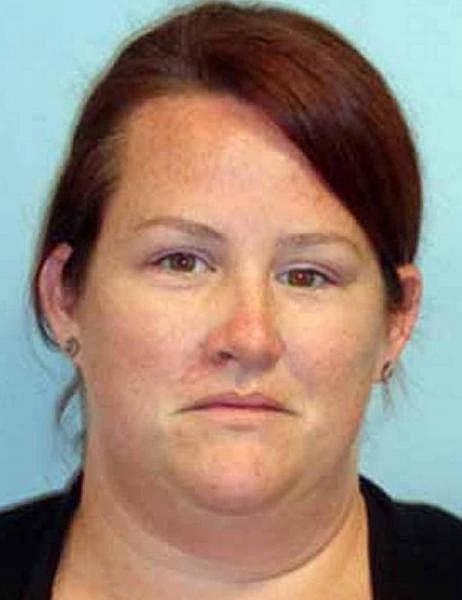
JoEllen Marie Gardner was a worker like that. Gardner was charged by the Collier County Sheriff’s Office in December 2015 with distributing obscene material to a 17-year-old after the youth’s aunt discovered “inappropriate pictures and messages” from Gardner. He had just been released from the Fort Myers Youth Academy, where Gardner worked.
A detective found “nude pictures” of Gardner and conversations that “indicated a sexual relationship,” a police report said.
Gardner was found guilty of the obscenity charges and placed on three years probation.
A staffer at the Highlands Youth Academy exchanged 52 handwritten letters totaling 92 pages with an 18-year-old detainee in 2015. “Some of the letters could not be deciphered as they were written in code,” a DJJ report said. The worker said she and the youth had kissed about 10 times and they planned to “date” following his release. She later told police “she made a mistake and was ashamed of her actions.” She resigned.
Much of the illicit behavior goes beyond kissing and sharing photos. According to DJJ, DCF and law enforcement accounts reviewed by the Herald, detained youths have been abused by staffers in every way imaginable: penetrated while bent over a laundry sink, forced onto their knees to perform oral sex, pressed and fondled against a wall.
One teen performed oral sex on a staffer while in the bathroom of an off-property dental office, a lawsuit said. The teen said the officer removed his handcuffs, stood behind and forcefully asked: “Are you going to do it?”
In two separate cases, boys told investigators they contracted a venereal disease as a consequence of having sex with program staffers. At least three times, girls were impregnated by their jailers or former jailers. In one case, a therapist bore a child with a teen she had sex with after he left her program. Despite terminating her, supervisors gave her a positive recommendation for another job working with kids.
Remorse, fear, silence
The number of reported cases likely represents a fraction of the abuse that occurs. The U.S. Justice Department has studied custodial rape by surveying inmates and detainees since Congress passed the Prison Rape Elimination Act in 2003. “We certainly get high rates of sexual victimization by talking to [detained] kids,” said Allen J. Beck, the Bureau of Justice Statistics’ principal researcher.
He said the official numbers don’t reflect the reality, and many sexual assaults “don’t get reported to correctional authorities, and correctional authorities don’t report [them] to us.”
About one in five victims of sexual abuse reported “physical force or threat of force,” the survey found. More commonly, youths were given drugs or alcohol, or “offered protection” by staffers.
Whenever you put adolescents in institutions, you have to deal with the potential for some kind of sexual overtures. The worst-case scenario involves staff and kids. The chances that it will go unreported are very high. -Tom Petersen, Miami’s first juvenile public defender and later a Juvenile Court judge
Even when juvenile detainees aren’t subjected to force, coercion or manipulation, sex with staffers is unlawful and can engender shame, remorse, fear — and silence.
“Whenever you put adolescents in institutions, you have to deal with the potential for some kind of sexual overtures. The worst-case scenario involves staff and kids,” said Tom Petersen, a retired juvenile judge who was Miami-Dade’s first juvenile public defender.
Petersen added: “The chances that it will go unreported are very high. No one wants to report it. No one wants to talk about it. No one wants to go to the police about it. No one wants to prosecute it. No one wants to be in a courtroom. No one wants to be involved.”
Florida’s official rate of victimization was below the national average in the 2012 DOJ report, in which the U.S. Bureau of Justice Statistics surveyed 8,707 incarcerated juveniles. Nationwide, 7.7 percent reported sexual abuse by a staff member; in Florida, the rate was 4.5 percent.
Where some staffers offer flattery and favors, others employ threats.
A boy at the St. Johns Youth Academy in St. Augustine told investigators in 2013 that the kitchen worker who anally penetrated him in an office “threatened to [mess] him up” if he reported the misconduct.
Several of the reported victims at Milton Girls told investigators they feared being punished for coming forward. One said she believed she would be “restarted” — have her sentence begin from scratch — if she talked.
“I’m just trying to hold on,” she told a detective, according to a transcript of her interview. The girl said her abuser, Parker, had fondled her repeatedly under her pajama pants, and the touching was “unwanted.”
Some detainees are particularly vulnerable. Daniel Armstrong, a psychologist who heads the University of Miami’s Mailman Center for Child Development, said well over half of the youths in state juvenile justice programs have some kind of intellectual or developmental disability, diminishing their capacity to make sound decisions.
Cleveland Richardson Florida Department of Corrections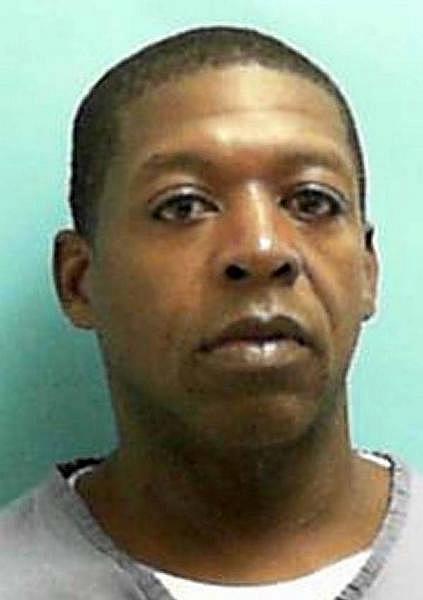
That may be what Cleveland Richardson counted on. For six years, he worked as a supervisor at the Apalachicola Forest Youth Camp, a DCF-operated Panhandle training center for youths whose mental illnesses or intellectual disabilities rendered them incompetent to stand trial.
Among the youths Richardson supervised was a Tampa girl who kept his secret for more than a year. She could not hide it forever, though. In April 2012, after she had been released, the 17-year-old took her 3-month-old baby for a checkup.
“Her doctor kept asking her who the father of her child was,” a Tampa police report said. “She [had] no reason to lie,” and disclosed that Richardson had sex with her more than 20 times when she was locked up.
The camp’s female detainees are given pregnancy tests before admission, a DCF report said, so any pregnancy would be hard to explain. The young mother told Tampa detectives “there was also a girl she remembers that left the youth camp and was already pregnant,” according to the police.
Unlike so many other custodial rape investigations, this one rested on virtually ironclad evidence: Richardson’s DNA was a match. He served a three-year sentence for sex with an underage girl and is now a registered sex offender in Tallahassee.
A Glock to the temple
More often, the Herald’s analysis shows, authorities are loath to prosecute. In June 2016, an officer at the Orange County Juvenile Detention Center admitted to police that he gave a former detainee money, picked her up down the road from her mother’s home, and had vaginal and oral sex with her at least four times — at his Kissimmee home while his wife was out of town, and in the back seat of his parked car.
So many of the kids that come into our system are already victims of sexual abuse and other types of abuse. I certainly don’t want this system to contribute to that. -Christina K. Daly, DJJ secretary
The officer, Raymond Berry-Brown, told police it wasn’t his fault: The teen “initiated the relationship between them.” He said the sex began after the 17-year-old girl was released from the Orlando lockup.
DJJ and police investigations of Berry-Brown don’t show it, but the former officer also left undeniable evidence of his involvement with the teen: She, too, had a baby, on April 7, 2017, Orange Circuit Court records say. Following the girl’s birth, her mother filed a petition against Berry-Brown for protection from domestic violence, asking an Orlando judge to keep him away from both her and the newborn.
The judge signed a protection order in July, and it gave the mother full custody of her baby.
Even after DJJ substantiated an allegation of improper conduct of a sexual nature — and DCF verified a sexual abuse allegation — authorities declined to charge Berry-Brown with a sex crime. An Orange County Sheriff’s Office report said the teen failed to show up for an interview, and the department couldn’t determine whether any laws were broken in Orange County.
Detectives did arrest Berry-Brown for kidnapping, aggravated assault with a weapon, domestic battery and aggravated assault with a car — an episode that appears to have been the basis for the teenager’s protection request. The teen told deputies that, in “an incident of dating violence,” he choked her until “she could barely breathe,” put what she described as a black Glock to her temple while screaming “I’m gonna f---ing kill you,” and then tried to run her over with his gray Chrysler 200.
The State Attorney’s Office declined to file charges in August 2016, saying the case was “not suitable for prosecution.”
Berry-Brown resigned from the lockup.
Pervasive sexual misconduct at one Central Florida program might have gone unchecked had it not been for the local sheriff stepping in where DJJ and the contract provider failed.
Polk County Sheriff Grady Judd arrested Norma Jean Wynn, the former top administrator of the Highlands Youth Academy, in August on evidence tampering and child neglect charges for her alleged role in covering up abuses at the mental health treatment program.
According to detailed charging documents, one of Wynn’s subordinates, 25-year-old Deidre Baucom, was known to have had sex with two different boys one night around March 12, 2015 — including once with a 16-year-old while she was bent over a toilet in a dormitory bathroom. Other youths said they, too, had sex with Baucom.

The scandal was covered up. A DJJ inspector, investigating rumors of sexual misconduct at Highlands, asked for records from the contractor that operates the program but was told there were none, a police report said. Wynn “admitted her knowledge of ‘rumors,’ but said the program had found “no truth to the allegations.”
In fact, she had been given signed statements from detainees, the sheriff’s office later determined.
The sound of a waistband snapping
In August of 2015 came a new allegation. A Highlands youth worker said he witnessed another colleague performing a sex act on a detainee in the door frame of the youth’s room. When he walked closer, he heard “the sound of an elastic waistband snapping,” charging documents say.
The worker reported what he witnessed, but Wynn told him “to not document the incident” as the case was closed. In that instance, as well, a DJJ inspector was told by Highlands that there were no records of the alleged misconduct.
Eventually, Sheriff Judd began to hear disturbing stories. Judd, who had a history with the program — having helped put down a major riot in 2013 that led to a scathing grand jury report — was able to assemble a case where DJJ could not.
Baucom pleaded no contest to sexual misconduct and contraband smuggling, and is serving 10 years probation. Wynn, who resigned, and two other high-ranking former administrators are awaiting trial on charges ranging from child neglect to evidence tampering to failure to report.
More commonly, administrators get a wrist slap when they ignore sexual misconduct. In May 2015, the top two administrators at an Okeechobee youth compound — the program administrator, and his boss, the regional director — were told that two female youth workers had sex with confined youths. One worker purportedly had been seen in a supply closet with a boy; the other was alleged to have kissed and had sex with a boy in one of the showers, an inspector general report said.
The administrator filed a police report that May 6, but with the alleged offenders and victims listed as unknown. The next month, on June 24, a DJJ investigator gave Okeechobee’s regional director handwritten statements from two youths identifying two suspected offenders and a possible victim.
DJJ “encouraged” the regional director to review the statements and act on them. Instead, he gave them to the program administrator, who “placed them in the file” without reading them, an administrative review found.
Two months later, on Aug. 14, the same inspector “encouraged” the program administrator “to follow the program’s [rape] policy and update the Okeechobee County Sheriff’s Office with the names of the alleged suspects and victim,” the report said.
Again, nothing was done. Lacking any details, the sheriff’s office closed the case.
“Without a suspect or a victim, there is nothing for me to investigate,” Detective Richard Varnadore wrote.
The alleged sexual misconduct was never investigated. A 56-page report on allegations of widespread wrongdoing at the program, including bounties for beatings, said that without any investigation by police or the state’s child welfare agency, which was never told of the claims, DJJ could not determine whether the rape accusations were true.
Asked why he dismissed the allegations, the program administrator told an investigator that he believed they were “false” because he’d spoken to 43 detained youths, and all had denied them. Other than oral reprimands, no staffers were disciplined.
In one of the more outlandish cases in recent years, the mother of a recently released detainee at the Manatee Regional Juvenile Detention Center drove her 14-year-old to Lockhart, Texas, near Austin, to escape the attention of a DJJ officer she suspected was having sex with her daughter. The case is outlined in police and DJJ inspector general reports obtained by the Herald.
Fleeing to Texas
“My daughter did have physical contact with one of your guards inside djj. Also outside of djj. ... My daughter was not safe inside your detention facilities,” the mom wrote in an Aug. 26, 2016, email to an investigator.
The family’s odyssey began shortly after the teen’s release from detention, where she had been sent after violating a judge’s order to remain in school. While the girl’s parents weren’t looking, staffer Nelson Roman picked her up from their North Port home, police and inspector general reports said. Grilled later by her mom, the girl described the interior of Roman’s home.
“I was planning on leaving the state in a few months, but left immediately after [the teen] got out of detention because of your guard. To keep him away from her,” the mother wrote in the email.
The 20-year-old officer was not easily discouraged. He told his supervisors he needed to visit his grandmother on her deathbed in New York, then sped off in his red Honda Civic to Texas in pursuit of the girl, a DJJ inspector general report said.
When Roman arrived, the former detainee again sneaked away and met up with the detention staffer, police said. The mother sent him a text. “U need to bring [the girl] back right now. U r helping her break the rules of her [probation]. If I call the cops because she is missing she will go back to djj for 21 days. I don’t want that but she needs to obey me. U should know shes not allowed to sneak out in the middle of the night.”
Roman ignored the scolding. The girl’s mother went looking for the distinctive red car and found it — and her daughter — at a hotel with Roman, the inspector general reported. The mom described the place in detail to DJJ: “Lockhart inn. Bottom floor in the back about 5th door close to the end.”
U need to bring [the girl] back right now. U r helping her break the rules of her [probation]. If I call the cops because she is missing she will go back to djj for 21 days. I don’t want that but she needs to obey me. U should know shes not allowed to sneak out in the middle of the night. -Mom of 14-year-old, in text to DJJ detention officer
After the mom retrieved her daughter, Roman still wasn’t done with the family: The daughter texted her father back in Florida, stating that Roman had two flat tires on his trip home from Texas and needed money, DJJ and police reports said. The father refused to provide it. He called police.
After Roman made his way back to Florida, his story about the ailing grandmother crumbled. The Civic had two temporary tires — front and rear, passenger side — bolstering the story about the flats that the 14-year-old had described. He told colleagues he had a blowout in Tallahassee, but that was way off course, at least had he driven to New York as he said.
Later he gave investigators a different story: He’d been at a swap meet in a Panda Express parking lot across from the Lakeland Square Mall. The restaurant manager couldn’t remember any such swap meet, the inspector general report said.
Finally, the clincher: The Lockhart Inn in Texas had a record of him checking in on July 12, 2016, and checking out the next day.
The Bradenton Police Department closed its case, saying any illegalities would have occurred outside its jurisdiction.
DCF refused to investigate Roman, saying “the circumstances of the incident did not support that the youth was a victim of child abuse” — despite the misgivings of Bradenton officer Del Shiflett, whose report expressed “concerns for the adult guard entering into a relationship with a 14-year-old juvenile inmate.”
DJJ sustained allegations of “improper conduct” — but didn’t fire Roman. The lockup superintendent advised him “it would not look good on his résumé that he was fired from a state job,” according to an internal report. Roman quit, walking away with his résumé intact.
When staffers commit fireable offenses: 'We do need to have a record of that'
DJJ Secretary Christina K. Daly says she is concerned about the practice of allowing staff members accused of misconduct to resign to avoid being fired. -Emily Michot
The Herald sought to reach Roman for comment but could not locate him.
Return to Safe Harbor
In rare instances, youth workers do face criminal charges. Marvin Gallion is one. Records say he began his conquest with sweet talk and a smoke.
His alleged victim, a 16-year-old resident of Children’s Home Society’s Safe Harbor, was already frazzled by a panic attack so severe it landed her in a Palm Beach County hospital on Jan. 27, 2015. When it was time to return to the program, Gallion, off duty, volunteered to fetch her.
Marvin Gallion was accused of having sex with a detainee while transporting her. Palm Beach Sheriff’s Office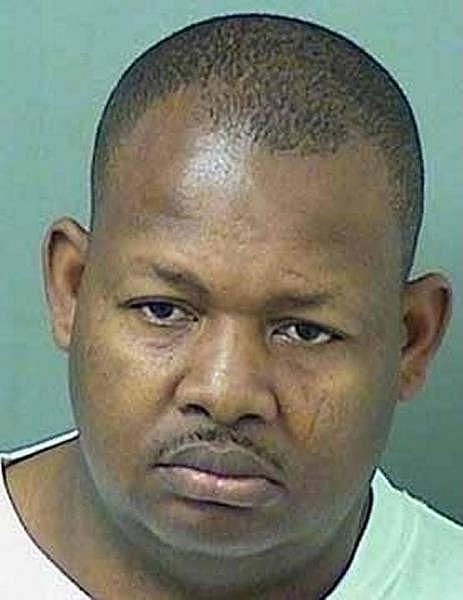
While shuttling the girl to Safe Harbor, he made his move, according to police, stretching what should have been a 15-minute trip to more than an hour.
First, police said, he invited the girl to smoke a Black & Mild cigar. They stopped at a Mobil station to purchase the single cigar and smoked it in the van in the back of the station, near the dumpsters and vacuum cleaners.
The Greenacres police narrative offers details: “Gallion began complimenting [the girl] on how she looked and asked her personal, sexual questions.”
Gallion, intimidatingly large at 265 pounds, kissed her and motioned for the teen to sit on his lap. She said she quietly cooperated but also “accidentally” pushed the car horn in an attempt to get someone’s attention. She apologized for her clumsiness.
“Mr. Marvin knows how to treat a woman right,” she said he told her.
The girl “said she was afraid to say anything because she was alone with him,” the police report states. As they began having sex, the girl wanted to stop. She “stated what was going on was wrong and she wanted to be taken back to Safe Harbor.”
He played the radio as they drove back.
Once back at the shelter for foster kids and troubled teens, the victim “began to shower because she felt dirty,” and told her roommate what had happened. The next day, the roommate ran away, taking the teenager’s panties as evidence.
She left a note: “Got the rape clothes.”
The roommate later gave the undergarment to police.
Gallion was fired and arrested on two counts: sexual battery while in a position of control and contributing to the delinquency of a minor. He pleaded not guilty, and is awaiting trial.
When a worker in St. Augustine was accused by a boy of having sex with him near the program’s kitchen, prosecutors declined to press charges, even though physical evidence and video lent credence to his claim.
It was February 2013. The worker at the St. Johns Youth Academy asked the teen to join him in the kitchen to wash dishes and sweep floors. In the nearby office, the worker, Dwayne Ross, took out his cellphone and allegedly shared images of his penis and of transsexuals. “Ross started talking about how crazy his sex life was,” an inspector general report said, and how his girlfriend liked it “kinky.”
While looking at one of the photos, the youth “asked if he could see it.”
Ross took pictures of the 16-year-old performing oral sex on him, the report said, and told the teen to pull down his pants and lean over a desk. Ross had sex with the youth, and then performed oral sex on him, an inspector general report said.
As Ross walked the boy back to his room, he issued a warning: “He would ‘f--- me up’ if this got out,” the youth told investigators.
It got out almost immediately. The detainee told his therapist.
A medical examination showed tearing and swelling that supported the boy’s story, and the institution’s cameras confirmed that Ross and the boy had been in the kitchen alone, a violation of the rules. The St. Johns County Sheriff’s Office sought a warrant to arrest Ross for having sex with a minor. It went nowhere.
Ross didn’t remain free for long. On April 10 of that year, officers executed a search warrant at his home and found several videos and still images of children performing sex acts. He was charged with 10 counts of child pornography.
Convicted of all 10 counts, Ross served two years, was released on Oct. 27, 2015, and is now listed as “transient” on the state registry of sex offenders.
Improper relationships between youths and their jailers are sometimes facilitated and cemented by technology and social media, even though detainees are not supposed to have access to cellphones. A worker at the Challenge Youth Academy in Brooksville exchanged dozens of texts, some about sex and drugs, in 2015 with a boy who had been committed there — including conversations when the boy was on furlough to attend his father’s funeral, an inspector general report said.
The texts — obtained by the Herald — were mostly flirtatious, with the counselor saying “I’m taking you off the market,” and “I’ll give you some time to get the ring.”
The youth counselor later told investigators that the texting was innocent, and that she didn’t discourage the contact “in case he was in crisis over his father’s death.”
Copies of the text messages show the woman told the boy to keep it quiet because “I would prolly get in trouble.”
That proved prophetic. She was fired on Nov. 10, 2015.
Bible chats and candy
Ernest Parker began working at the Milton program in March 2012 — an accountant without an accounting job. The now-closed 60-bed commitment program, in a small Panhandle town of the same name, provided counseling and behavior management for girls with emotional and behavioral problems.
As a “medical technician,” Parker monitored Module A and conducted evening room checks. He eventually positioned himself as a confidant who was easy to talk to and offered advice readily.
The girls liked him for another reason. He almost never wrote them up when they violated program rules.
But his actions bore the hallmarks of grooming: chatting about the Bible, sharing details about his children and grandchildren, hugging the girls and placing forbidden pieces of candy on their dorm dressers. Some of the girls came to think of Parker as their boyfriend.
The program was about to close in December 2012 after a string of abuse cases. Parker seemed to be in the clear until one of the girls wound up at the detention center in nearby Okaloosa County and asked to speak with an officer. The 17-year-old reported that Parker had touched her breast, and that when she rejected him and started to cry, he gave her a piece of candy.
“Don’t let this get me in trouble,” she said he told her.
As DJJ, DCF and Santa Rosa County deputies investigated, more girls were identified, each with a similar story about Parker, including his habit of handing out bitter-tasting mints — white, and blue in the center — that made them feel “dizzy” and “woozy” and “strange.”
One girl was in a medical exam when she disclosed that Parker had kissed and digitally penetrated her in her room. He shared with her personal details of his life: He had just gotten divorced (not true) and he was lonely. He said she had a nice figure and he wanted to have sex with her.
“He told me he liked me, I was cute and I was pretty,” a 17-year-old told police.
One 18-year-old told police that Parker touched her genitalia three or four times while she was standing in her doorway at Milton. On another occasion, he asked her to kiss him and touch his penis outside of his clothes. She did both — and also wrote him notes about what they would do to each other. “I may have formed some kind of feelings toward him,” she told a detective.
“It’s good to have a staff on your side,” a 15-year-old said while describing how Parker kissed and fondled her.
Ernest Parker Florida Department of Corrections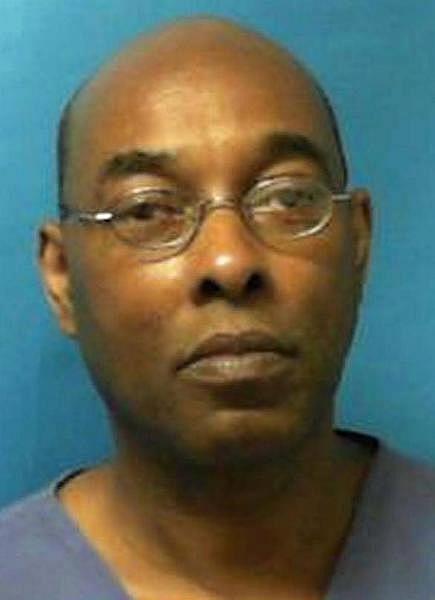
At first Parker was remarkably unyielding under questioning by police, but his denials crumbled when detectives asked him one question.
Did he have daughters? Yes, four.
“OK, what if this was your 13-year-old?” the detective continued.
In that moment, the weight of his decisions seemed to crystallize.
“You don’t have to go any further. I’ve ran this thought through my mind,” he said. “But for the grace of God, my 13-year-old could have been in a place like that and there could have been some lowlife like me.”
Parker owned up to a fraction of the crimes with which police charged him. And his remorse only went so far: “I know what I done was wrong. And there’s no justifying it,” he said in an interview with detectives after he was charged. “But God as my witness, I did not initiate any of this.”
It took a Santa Rosa County jury one hour and five minutes to convict Parker of three out of 16 charges. He’s serving 25 years for having sex with detainees.
At the conclusion of an interrogation, Parker seemed to have an epiphany.
“Wow. I’ve ruined my life,” he told detectives. “I come 52 years to do something so stupid. Can I call my wife real quick and tell her I ain’t gonna be home?”

